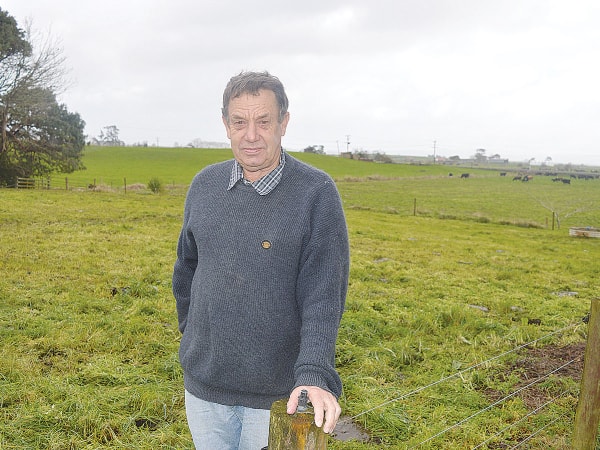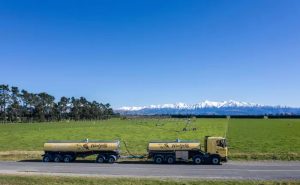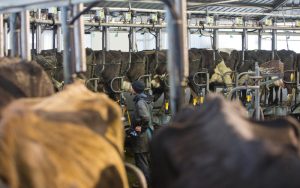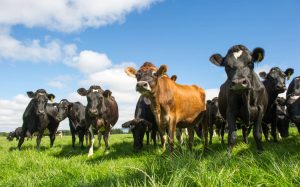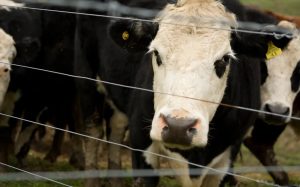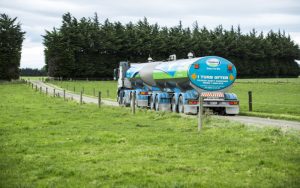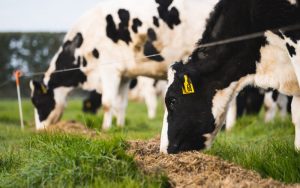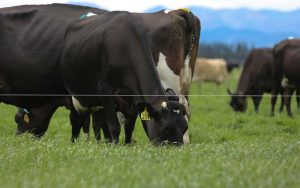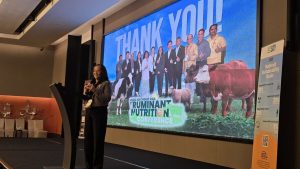
OPINION: From burping cows to grazing sheep, when it comes to global warming, the finger of blame is invariably pointed at the livestock farming industry these days.
Animal agriculture is causing greenhouse gas (GHG) emissions to raise, say critics, and if we’re serious about tackling climate change then we need to cut red meat from our diets and switch from cow’s milk to alternatives such as soy or oat milk for our tea or coffee.
It’s an argument that’s gained a significant amount of traction, with more and more people adopting vegan diets in response to repeated reports that livestock are a major contributor to the world’s environmental problems.
But while animal agriculture is by no means blameless in the global warming debate, it seems the industry’s impact on the environment is not as significant as critics suggest.
The Government has set a goal of reducing greenhouse gas emissions from agriculture as part of its overall effort to reduce New Zealand’s emissions by 50% by 2030.
What kind of madness is this? With all the economic issues affecting our country, why is the Government putting in place policies and IPCCdriven mandates that will seriously affect the food producing sector that provides food security for us and is also our primary income earner?
While methane has been said to be 28 times more heat-trapping than carbon dioxide, the UNFCCC declaration in November 2022 also stated that this figure was wrong.
The IPCC admitted the mistake in their Sixth Assessment Report, explaining at page 1016 of Chapter 7, “…expressing methane emissions as CO2 equivalent of 28, overstates the effect on global surface temperature by a factor of 3-4”.
After 10 years, methane is broken down in a process called hydroxyl oxidation into CO2, entering a biogenic carbon cycle which sees the gas absorbed by plants, converted into cellulose, and eaten by livestock.
To put that into context, each year 558 million tons of methane is produced globally, with 188m tons coming from agriculture. Almost that entire quantity — 548m tons — is broken down through oxidation and absorbed by plants and soils.
That means that provided no new animals are added to the system, then the same amount of carbon dioxide produced by livestock is used by plants during photosynthesis.
That’s not to say livestock has no impact on climate, but we are not adding additional warming.
In fact, with stock numbers decreasing thanks to increased production efficiencies and improved genetics we are reducing our emissions.
The dairy herd has shrunk from ‘peak dairy’ cows at 6.7 million stock units in 2014 down to 6,140,000 stock units in the 2023/24 season.
We have got smaller flocks and herds today, but we are producing the same amount of meat as we did when we had larger numbers.
There are many who claim that agricultural land used to raise livestock should be converted to arable land, but the problem with that argument is that two thirds of the world’s agricultural land is marginal, which means it cannot be used to grow crops because the soil is not sufficient or there’s not enough water.
We must use that land for livestock farming because it’s the only way to use it.
Those who say stop animal agriculture because it’s better for the environment and humankind are effectively saying let’s get rid of two thirds of all agricultural land.
When the Government says we need to reduce the national herd by 20% to meet our climate commitments, haven’t we done that already?
Aside from just the reduction in the total stock units in NZ, there is also the fact that the science used to calculate the emissions from livestock farming does not take into account the carbon sequestration from the grass pastureland itself.
If all forms of carbon sequestration on farms was taken into account when calculating our GHG emissions, it would be seen that farming is in fact reducing our emissions overall.
With our open pasture methods of livestock farming, we are acknowledged as one of the world’s most environmentally-sound producers of agricultural products.
Why aren’t our negotiators pointing this out to the climate commissioners and our markets?
Peter Buckley is a Waikato farmer and co-chairman of Primary Land Users Group.
